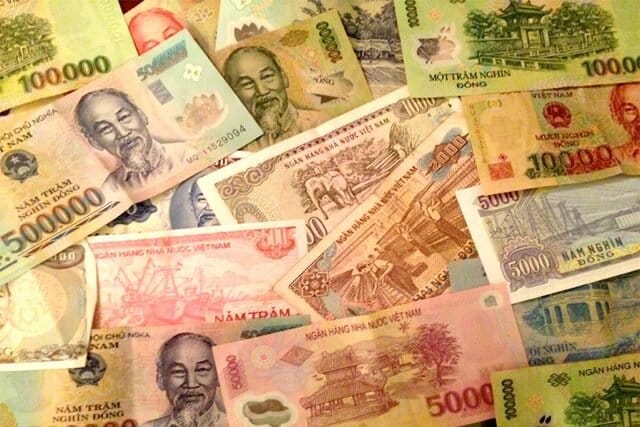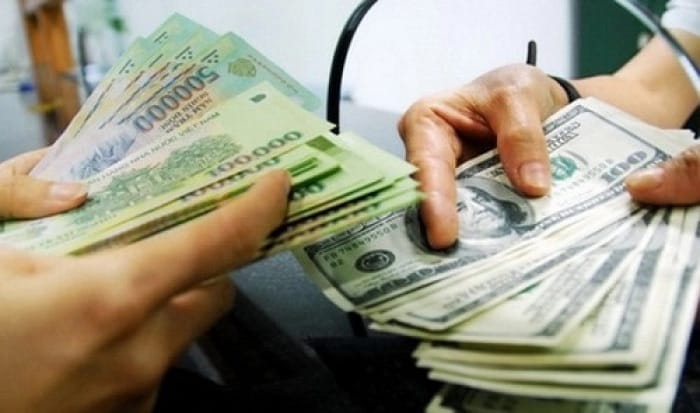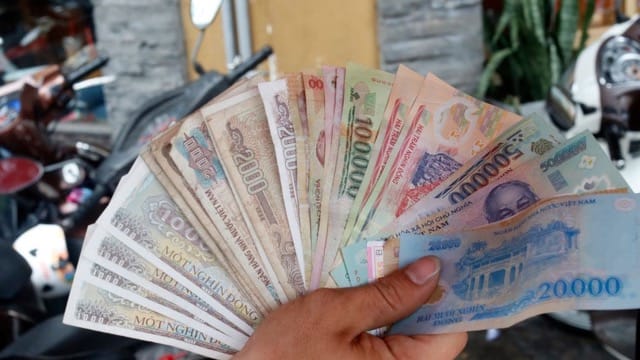When visiting Vietnam, it is important to understand the currency used in the country. Knowing the currency in Vietnam and the exchange rates will help you better navigate the country and make the most of your trip.
The currency in Vietnam is the Vietnamese Dong (VND). It is important to be aware of the exchange rates between the VND and other currencies, such as the US Dollar (USD) or the Euro (EUR). Exchange rates can fluctuate daily, so it is wise to keep an eye on them for the duration of your trip.
In addition to understanding the currency exchange rates, it is also important to know the methods of currency exchange available in Vietnam. Many banks and hotels offer currency exchange services, and there are also many money changers throughout the country. It is recommended to use a money changer as they typically offer better exchange rates than banks and hotels.
See more: Essential Vietnam Travel Requirements: Your Complete Guide
Contents
Understanding Currency in Vietnam
Vietnam’s official currency is the Vietnamese dong (VND), which comes in 1000, 2000, 5000, 10,000, 20,000, 50,000, 100,000, 200,000, and 500,000 denominations, while coins are no longer used. While other currencies can be exchanged, US dollars or Euros are Vietnam’s most widely accepted foreign currencies. When exchanging currency, it is important to ensure that the bills are in good condition without any markings or tears, and it is also important to note that the exchange rate may vary depending on the location.

The Vietnamese dong is the backbone of Vietnam’s economy and is used for all types of transactions throughout the country. It helps to stabilize the exchange rate and provides a reliable source of income. Additionally, it is used for international purchases, making it easy for travelers to convert their money into local currency.
Vietnam’s exchange rates for the Vietnamese dong are competitive, making it an attractive option for travelers looking to save money when visiting the country. To fully understand the currency in Vietnam, travelers should be aware of exchange rates and the preferred currency for their travels. Overall, the Vietnamese dong is an essential part of Vietnam’s economy and a critical aspect of any traveler’s experience in the country.
Get ready for your Vietnam journey with eVisa.
Exchange Rates and Conversion
Travelers have various options for exchanging currency in Vietnam. Banks tend to offer competitive exchange rates.

ATMs offer convenience, but you may be charged a fee for using your card, and some machines may have withdrawal limits. Currency exchange offices are typically easy to find, but they often have hidden fees or commissions, so it’s important to read the fine print before exchanging your money. Finally, many hotels offer currency exchange services, but their exchange rates may not be as competitive as other options.
It is recommended to use the local currency, VND, when exchanging currency, as it is more widely accepted than other foreign currencies. To check exchange rates, travelers can refer to online sources such as banks, money transfer services, or currency exchange websites. It’s also possible to check exchange rates at currency exchange kiosks or banks in Vietnam. However, it’s important to know potential fees or commissions associated with currency exchange, as these can vary depending on the chosen method.
Using cash is often the most cost-effective option, as it typically offers the best exchange rate. It’s important to note that some businesses may only accept cash, so it’s advisable to carry a small amount of VND with you at all times.
Tips for Handling Currency in Vietnam
It’s essential to have small denominations of cash on hand for daily expenses such as meals, transportation, and shopping. It’s recommended to carry a mix of cash denominations, including smaller bills, to avoid any issues when making purchases.

For larger purchases or transactions, it’s advisable to use credit cards or debit cards. Many establishments, especially in tourist areas, accept major credit cards such as Visa and Mastercard. However, it’s important to note that some small businesses and street vendors may only accept cash. Therefore, it’s always a good idea to carry some cash on you, especially if you plan to explore outside of major cities.
When handling cash in Vietnam, it’s important to always keep it secure. Pickpocketing is a common problem in crowded areas, so it’s advisable to use a money belt or a secure wallet.
When exchanging currency, it’s recommended to use a reputable money changer or bank to ensure you get the most accurate exchange rate. Currency exchange kiosks can be found throughout the country, but it’s important to check the exchange rates and any fees or commissions before making a transaction.
In addition to carrying cash and credit cards, it’s also a good idea to have a travel money card. These cards allow you to load multiple currencies onto the card and use it like a debit card for purchases and withdrawals. This can be a convenient and secure way to handle currency when traveling in Vietnam.
Find out the best time to visit Vietnnam.
Frequently Asked Questions
Q1: How much is $1000 in Vietnam currency?
A1: As of July 2023, $1000 is equivalent to approximately 23,100,000 Vietnamese dong.
Q2: How much is $500 in Vietnam currency?
A2: As of July 2023, $500 is equivalent to approximately 11,550,000 Vietnamese dong.
Q3: How much is 1 dollar in Vietnam currency?
A3: As of July 2023, 1 US dollar is equivalent to approximately 23,100 Vietnamese dong.
Q4: How much is 100 dollars in Vietnam currency?
A4: As of July 2023, 100 US dollars is equivalent to approximately 2,310,000 Vietnamese dong.
Conclusion
The Republic of Vietnam offers travelers a unique and exciting experience, and it is important for visitors to be aware of the country’s currency and exchange rates.
This guide has provided an overview of the key points about currency in Vietnam, from the official currency to the best places to exchange money. We hope this guide has been helpful in unlocking the secrets of currency in Vietnam and encourages travelers to be well-informed about currency matters before embarking on their journey.
With the right knowledge and preparation, travelers can enjoy a hassle-free experience and make the most out of their time in this beautiful country.


Related Posts
Saigon’s “Flower Market Replica”: Where To Find Them
Ho Chi Minh City’s floral charm is not limited to its bustling wholesale markets. Imagine wandering through a place where vibrant petals, fragrant blooms, and the spirit of traditional Vietnamese markets come alive—without the overwhelming crowds. A flower market replica captures that magic, blending the beauty of fresh flowers with the charm of a curated, […]
Is it Safe to Travel to Vietnam Right Now? A Complete 2025 Guide
Vietnam has emerged as one of Southeast Asia’s most captivating destinations, drawing millions of visitors annually with its rich culture, stunning landscapes, and incredible cuisine. However, many travelers still ask: Is it safe to travel to Vietnam right now? This comprehensive guide provides you with everything you need to know about Vietnam travel safety in […]
Ho Chi Minh Cu Chi Tunnels Tour: The Ultimate Guide
The Cu Chi Tunnels stand as one of Vietnam’s most remarkable historical sites, offering visitors a profound glimpse into the ingenuity and resilience displayed during the Vietnam War. For travelers, a Ho Chi Minh Cu Chi tunnels tour represents an essential experience that combines education, adventure, and deep cultural understanding. This comprehensive guide will help […]